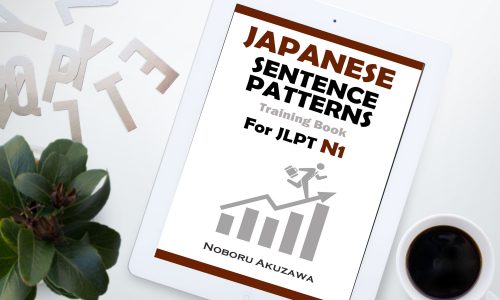Meaning: no wonder; it’s not surprising that
Formation:
Verb-casual + だけのことはある
Noun + だけのことはある
いadj + だけのことはある
なadj + な/だった + だけのことはある
日本語 / にほんご / Japanese
(1)彼は異文化をよく理解している。留学しただけのことはある。
(2)私の友達は彼女の学校のテストに全部合格した。毎晩勉強しただけのことはある。
(3)この靴ははき心地がいい。名作と呼ばれるだけのことはある。
(4)あなたの会社はこの不況にびくともしない。さすが大企業だけのことはある。
(5)その映画は面白かった。スティーヴン・スピルバーグが作っただけのことはある。
ことばと表現 / Words & Expressions
異文化【いぶんか】different cultures
留学【りゅうがく】to study abroad
全部【ぜんぶ】all
毎晩【まいばん】every night
不況【ふきょう】recession
びくともしない to feel no fear, unmoved
英語 / えいご / English
(1) He has a good understanding of different cultures. He hasn’t studied abroad for nothing.
(2) My friend passed all her school exams. It’s not for nothing she studies every night!
(3) These shoes are comfortable to wear. It’s not surprising that they are called a masterpiece.
(4) The recession does not truly bother your company. There has not been a big company for nothing.
(5) That movie was really interesting. That’s what I expect of a Steven Spielberg film.
ひらがな / Hiragana
(1)かれは いぶんかを よく りかいしている。りゅうがくしただけのことはある。
(2)わたしの ともだちは かのじょの がっこうの テストに ぜんぶ ごうかくした。まいばん べんきょうしただけのことはある。
(3)このくつは はきごこちが いい。めいさくと よばれるだけのことはある。
(4)あなたのかいしゃは このふきょうに びくともしない。さすが だいきぎょうだけのことはある。
(5)その えいがは おもしろかった。スティーヴン・スピルバーグが つくっただけのことはある。
ローマ字 / Roman letters
(1) Kare wa i bunka o yoku rikai shite iru. Ryūgaku shita dake no koto wa aru.
(2) Watashinotomodachi wa kanojo no gakkō no tesuto ni zenbu gōkaku shita. Maiban benkyō shita dake no koto wa aru.
(3) Kono kutsu wa haki-gokochi ga ī. Meisaku to yoba reru dake no koto wa aru.
(4) Anata no kaisha wa kono fukyō ni bikutomo shinai. Sasuga dai kigyō dake no koto wa aru.
(5) Sono eiga wa omoshirokatta. Sutīvun supirubāgu ga tsukutta dake no koto wa aru.


























No comments yet.